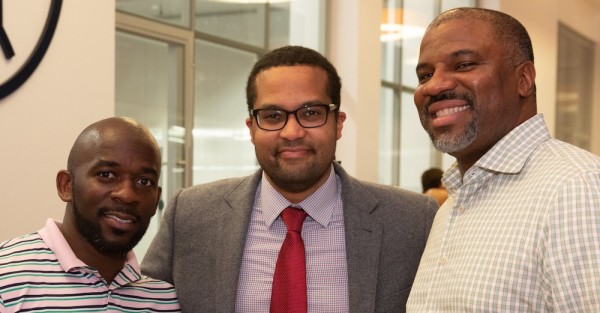

Editor’s Note: The following story highlights a veteran at Fannie Mae. Committed to including talented members of the military community in its workplace, Fannie Mae is a client of Hirepurpose, a Task & Purpose sister company. Learn more here.
Kelvin Brown knew he wanted to pursue a career in corporate America when he left the Army, but he wasn’t sure how to make that transition. With the help of his Army Transition Officer, they highlighted the skills he developed during his Army service of eight years.
“Rather than focusing on my military job title, my ATO helped me focus on the skills and traits that made me a desirable candidate for a position in corporate America,” he says. And it worked out. Brown received an offer from Campbell Soup Company and his career took off from there. He climbed the corporate ladder at various, high-profile companies like PECO, Capital One and eventually Fannie Mae, where he serves as the Pilot Manager supporting the Sustainable Communities Partnership and Innovation Initiative. In addition to that, he also is an active member and leader within Fannie Mae’s Veterans Employee Resource Group, known as the VERG.
“Fannie Mae understands the importance of diversity and that it’s a strategic advantage a competitive hiring marketplace,” says Brown. “The leadership is actively supporting the enhancement of the VERG mission and our outreach, both within Fannie Mae and in the local community.”
The VERG at Fannie Mae is more than a bunch of veterans sharing war stories over a few beers. The VERG is a formal organization centered on military veterans that makes an impact in the lives of its members, fellow Fannie Mae employees, and the veteran community.
“Every year the VERG plans and hosts three to four major activities ranging from workplace events to volunteer opportunities,” says Brown, who also serves as the VERG vice-president. Through a partnership with Friendship Place in Washington D.C., VERG volunteers recently renovated an apartment for a military veteran transitioning from homelessness. “Having a positive impact on someone’s livelihood is very meaningful and rewarding and really shows that Fannie Mae is actively seeking innovative ways to enrich the community in which we serve. It also instills a ton of pride in our members as well,,” says Brown.
Fannie Mae’s VERG has also been instrumental in developing hiring initiatives specifically geared towards the military and veterans. Brown and his board of veteran leaders helped develop an HR practice that recognizes military service in place of educational requirements; a barrier that many transitioning service members, regardless of rank, often encounter.

Kelvin E. Brown is the Pilot Manager for Sustainable Communities Partnership and Innovation Initiative at Fannie Mae.Courtesy
Transitioning from military to civilian life is challenging. It’s a change of scenery, language, workplace rhythm, attire, mentality and so, so much more. However, being a part of a veteran-specific resource group within the workplace can provide the support to make the transition much less scary and stressful. Here are three reasons why Brown and the VERG think it’s important for military veterans to join their company’s veteran resource group.
- Camaraderie. Sometimes you just need to talk with someone who speaks the same language. You’ve found friendship in the past through shared experiences and assignments – a military veteran employee resource group can provide the outlet to share those stories when you need to and build new relationships.
- Resources and Mentorship. Leaving the military is tough. Starting a new job is tough. But having a group that you can go to when you have questions or want to make a career change is critical. And when you have a shared experience in military service, you have an immediate connection to other vets in the workplace.
- Transition Assistance. Learning the ropes in a new environment is no easy task. A resource group geared towards military veterans can help ensure you don’t miss important milestones as you hang up your uniform for the last time and put on a suit for the first time.
As service members prepare for civilian life, Brown recommends making a transition plan. Know what is important to you and how you’re going to get there. It’s equally important to remember that even if you’re leaving military service behind, it never truly never leaves you. “Something that the Army instilled in me was leadership and compassion,” says Brown. “Treat people the way they want to be treated. That transcends well beyond the family and into any arena, especially corporate America. It will serve you at any point in your civilian career as well.”